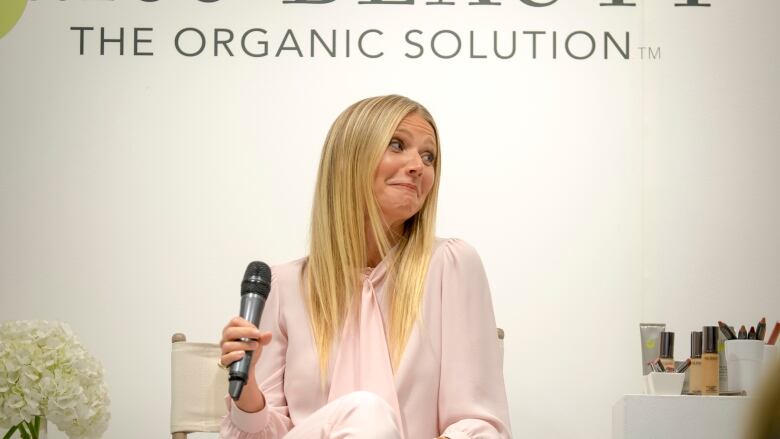Goop has exploited the medical establishment's failures on women's health
The wellness industry taps into and profits from women's frustration with conventional medical treatment

Goop, the wellness empire built by actor Gwyneth Paltrow, is not just your average peddler of pseudoscience. The lifestyle brand, which is now making its way into Canada, has been successful in tapping into a space where the lazy self-empowerment of women's magazines meets the medical establishment's failures in women's health. That's where Paltrow has found the ideal market to tout vaginal steamers for uterus "cleansing" and jade eggs rocks inserted in the vagina for improving sex and balancing your menstrual cycle.
Women have long been absent from medical research, with male subjects serving as the default human model. Numerous studies have found that pain is more likely to be dismissed and under-investigated in women compared to men. And while there's been no shortage of research money spent on erectile dysfunction, female sexual problems have historically been dismissed as both too mysterious and too unimportant to fix. Entrenched sexism has thus long been a feature of mainstream medicine, and Goop and the wellness industry has seized on the resulting sense of disenfranchisement among women to reap the financial rewards.
Marketing to women
Alternative health practices have been around to varying degrees of popularity for decades, but in the past they often came with strong anti-consumerist, counterculture overtones. What's changed in the past 20-or-so years is the adoption of a more mainstream look, the move toward unfettered capitalism and the specific language of female flaws and phony empowerment borrowed from women's magazines.
The culture of bodily defect has long been a staple of marketing to women. In the early to mid 20th century, Lysol ran ads warning women that vaginal odour would destroy a happy marriage. The ads promised that douching with bleach would restore "freshness" and repair a broken sexual relationship.
Those ads seem ridiculous today, but women and girls are still continually bombarded by messages that their bodies are wrong and the source of their woes. The more sophisticated, modern approach is to frame bodily critique as an opportunity for self-empowerment: lose that belly fat, learn this neat sexual trick, buy an anti-aging lipstick, adopt a 10-step skincare regimen and you too can girl-power your way to a better life.
- Medical experts push back asGwynethPaltrow'sGoop brand comes to Canada
-
SECOND OPINION |It's war!Debunkerstake onGwynethPaltrow'sGOOP and celebrity pseudoscience
The combination of aspirational blogging, female-targeted marketing and the alternative health industry has created something with significant potential to cause harm. Dr. Jen Gunter, a Canadian-trained gynecologist based in the U.S., has written extensively on Goop, pointing out that jade eggs can lead to toxic shock syndrome and coffee colonics another Goop recommendation can cause rectal burns.
In my family practice I frequently field questions about alternative health. And while some practices are supported by evidence or are culturally important and date back millennia, some are pure opportunistic snake oil: anti-scientific and crass in exploiting illness for profit.
When considering a wellness product, I often ask two questions: 1) How outsized are the claims? Promises to cure a huge laundry list of unrelated diseases should be met with extreme skepticism. 2) How anti-scientific are the claims? Some beliefs run counter to basic biological facts, like the claim that diet can "alkalinize" the blood. Not only is this physiologically impossible, it would actually kill you if you were able to do it.
A dubious alternative pathway
The danger of Goop isn't simply in the broader risks of pseudoscience and misinformation, it's in the exploitation of medicine's sexism to create a new and gendered market for snake oil. The wellness industry isn't pushing for more and better science into women's health it wants instead to create a secondary pathway for women's issues outside of the mainstream. The subtler risk is that wellness will continue to evolve along a gendered path, disproportionately exposing women to the harms of quackery.
The lack of concern for women's health in medical science is not solved by creating an alternative pathway filled with vaginal steamers. The solution is representation: as medicine has become more diverse, the ability of the profession as a whole to provide inclusive, patient-centred care has improved.
More importantly, women are needed in the leadership positions where decisions about research, education and health policy are made. That is how change happens for the better in women's health. Not through the borrowed marketing tools of the beauty industry and a celebrity shill eager to throw science under the bus in exchange for profit.
This column is part ofCBC'sOpinion section.For more information about this section, please read thiseditor'sblogandourFAQ.












_(720p).jpg)


 OFFICIAL HD MUSIC VIDEO.jpg)
.jpg)



























































































